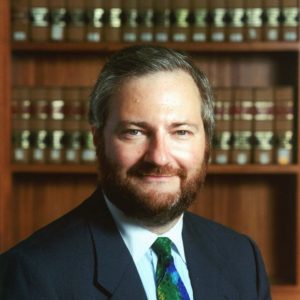CURRENT MONTH (January 2023)
Ethics and Professional Responsibility
Third Draft of AML-Related Amendments to Model Rules Under Consideration
On January 23, the ABA Standing Committee on Ethics & Professional Responsibility (the “Ethics Committee”) and Standing Committee on Professional Discipline (collectively, the “Committees”) jointly issued a third discussion draft of possible changes to the Model Rules of Professional Conduct relating to anti-money laundering (“AML”) and countering the financing of terrorism (“CFT”). This initiative, like those previously discussed in BLT last August and last January, arises from concerns about the future of self-regulation in the wake of the Corporate Transparency Act (the “CTA”) and increased AML/CFT pressure from the Treasury Department.
Background
The impetus for this initiative has a long history too lengthy to recount in detail in a Month-in-Brief entry. Suffice it to say that advocacy for changes to the Model Rules has been ongoing over the past 15–20 years.
Treasury’s interest stems from receipt of less than perfect “report cards” in decennial, “mutual evaluations” in 2006 and 2016 by the OECD’s Financial Action Task Force (FATF) of compliance with its recommendations. Specifically, although the United States has the oldest and one of the most—if not the most—extensive and robust AML/CFT regimes in the world, FATF was critical of failure by the United States to implement all of FATF’s recommendations, including one to mandate beneficial ownership reporting requirements for certain “designated non-financial businesses and professionals” (“DNFBP”), a category that includes the legal profession.
Application of FATF’s DNFBP regime to the U.S. legal profession misapprehends the differences between lawyers in civil law systems and lawyers in the common-law-based U.S. system. As a general proposition, lawyers in civilian systems are often regarded as facilitators of the operation of the legal process and lack the independence of lawyers in our system. Moreover, the broad sweep of FATF’s approach tends, for AML and CFT regulatory purposes, to treat lawyers in much the same way as dealers in used cars, precious metals, securities, commodities, check cashers, predatory lenders, and other diverse businesses—including casinos!—are treated.
The Ethics Committee repeatedly rejected those overtures to amend the Model Rules based on the view that the rules should be general in nature and not specific to any particular area of practice. Instead, the ABA’s policy has been to articulate principles and some practical advice in the Voluntary Good Practices Guidance for Lawyers to Detect and Combat Money Laundering and Terrorist Financing (last revised in 2010), authored by the ABA Task Force on Gatekeeper Regulation and the Profession and endorsed three years later by the Ethics Committee in Formal Op. 463 (May 23, 2013).
Periodic pressure from FATF and the Treasury Department to amend the Model Rules increased as a result of publication in recent years of the Panama Papers, the Paradise Papers, and the Pandora Papers. On top of that, the American public was treated to the “60 Minutes” model of “gotcha” journalism that used mystery shoppers to embarrass a number of prominent lawyers, including a former ABA President, in the 60 Minutes – Global Witness exposé televised in 2016.
Bowing to the increased pressure from FATF via Treasury, the Ethics Committee reinterpreted the bounds of the duty of inquiry (as it had previously been understood) in the somewhat controversial Formal Op. 491 (April 29, 2020). This approach relied on existing ethics rules and continued to resist relentless efforts (including multiple approaches from the Gatekeeper Task Force) to amend the Model Rules.
The Gatekeeper Task Force’s paramount concern was that the ABA should amend the Model Rules lest the profession lose the privilege of self-regulation (at least in the AML/CFT context) and become subject to regulation from the outside. Though superficially attractive in the abstract, that argument has some serious flaws.
First, despite the admitted breadth of Congress’s power over interstate commerce, regulation of the legal profession has historically been the purview of the states. Case law upholding sanctions for the unauthorized practice of law support this view, even though most contemporary law practice, which at least until the 1960s was predominantly local in nature, is now national—if not international—in scope. If, as the Supreme Court has held, regulation of guns in school zones and violence against women exceed congressional power under the Commerce Clause, it is far from clear that an attempt directly to regulate lawyers would survive a similar challenge.
Second, the beneficial ownership requirements enacted in the CTA do not directly impose those provisions on lawyers and law firms (though lawyers who provide entity formation services for clients must be sure to comply with those requirements).
Third, were FinCEN (or any other federal agency) to seek, sua sponte, to impose such requirements on the legal profession, they would likely run aground on the same shoals that scuttled the Federal Trade Commission’s attempts to sweep lawyers within the privacy provisions of the Gramm-Leach-Bliley Act and that agency’s “red flags” rule under the Fair and Accurate Credit Transactions Act.
The Current Proposal
In the first discussion draft, dating from December 2021, the Committees proposed amendments to only the Comments—not the blackletter text—of certain of the Model Rules, predominantly Model Rule 1.2 (Scope of Representation & Allocation of Authority Between Client & Lawyer). The thrust of this proposal was on the “knowledge” standard under the Terminology section and its application to client due diligence.
The Committees’ second discussion draft, dating from June 2022, proposed to amend not only comment language but the blackletter text of Model Rule 1.2(d), to include the following language: “To avoid counseling or assisting a client in conduct the lawyer knows is criminal or fraudulent, a lawyer who reasonably believes a client seeks to use the lawyer’s services to engage or assist in such conduct shall make a reasonable inquiry into the facts and circumstances of the representation.” The proposed comment language would have listed certain factors that might give rise to such a “reasonable belief,” specifically adverted to AML/CFT concerns, and noted that lawyers might be required to withdraw from the representation under Model Rule 1.16 (Declining or Terminating Representation).
The current proposal seems to have abandoned any amendments to Rule 1.2 and has instead shifted the focus to Rule 1.16. Specifically, the Committees propose to amend Model Rule 1.16(a) initially by requiring a lawyer to “assess the facts and circumstances of each representation to determine whether the lawyer may accept or continue the representation” and inserting a new paragraph (a)(4) mandating withdrawal “if . . . the client or prospective client insists on using the lawyer’s services to commit or further a crime or fraud.” Sensibly, the blackletter amendment would make no specific references to AML/CFT. Those are relegated to a new Comment [4] to the rule, which also includes a reminder to comply with Model Rule 1.2(d), as well as Rules 1.6 (Confidentiality of Information) and 3.3. (Candor Toward the Tribunal).
The Committees will conduct a public roundtable via Zoom on February 28, 2023, to discuss any comments to the Third Discussion Draft. Any readers interested in participating must register by February 17 in accordance with the instructions set forth in that document.




